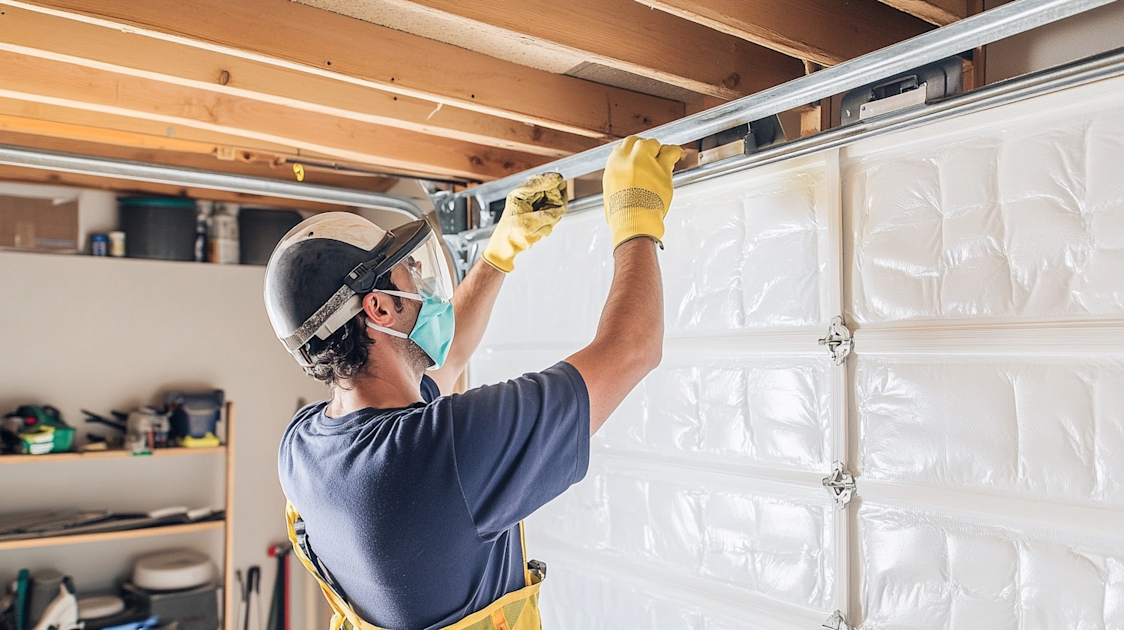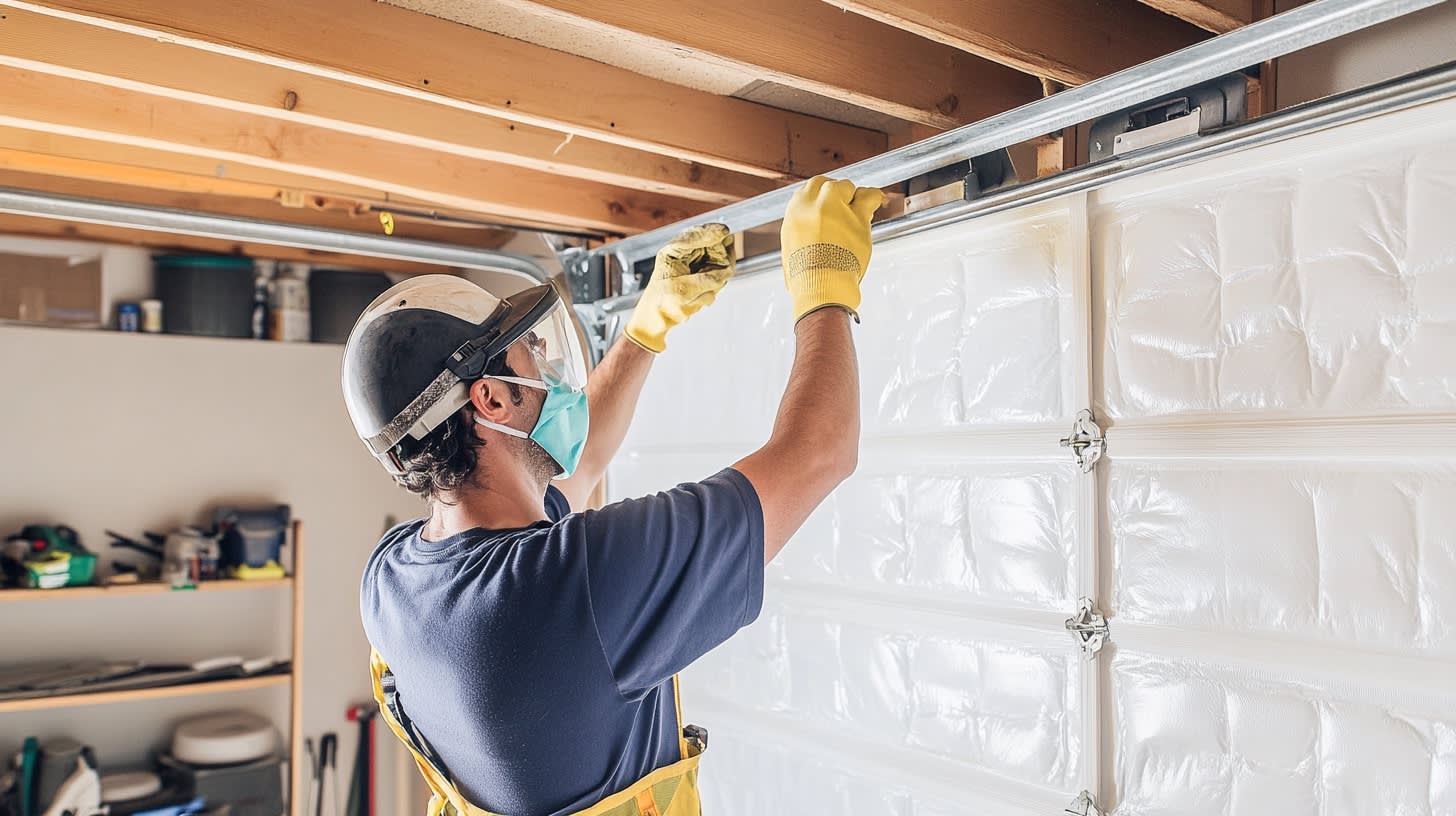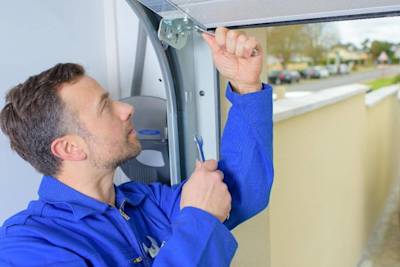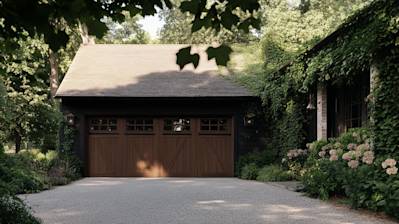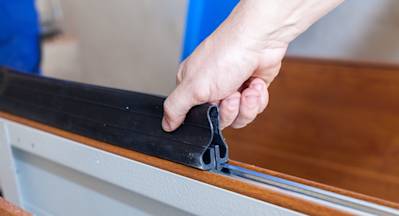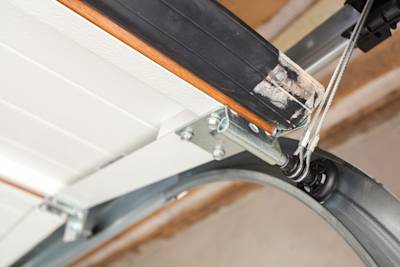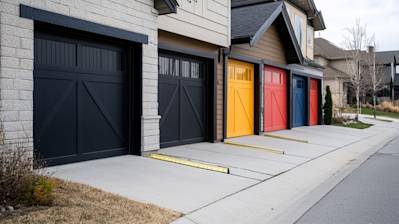Any homeowner will tell you that the garage is not just a parking space for their vehicle— it's an extension of their home. It also serves as a storage room, a workshop, and sometimes, a place for quality time with family. As such, garage door insulation substantially influences energy savings, thermal efficiency, and overall comfort in your home. This blog article will present a comprehensive look at the importance of garage door insulation, and more importantly, why it deserves your attention.
Why Garage Door Insulation Matters
Garage door insulation plays a critical role in multiple aspects:
- It retains heat during colder months and reflects heat in the summer, maintaining a comfortable temperature within your garage.
- By acting as a sound barrier, it provides some level of noise reduction.
- It enhances the durability and strength of the garage door.
Given these benefits, garage door insulation is undeniably a valuable investment for your home.
Different Types of Garage Door Insulation
Depending on the needs of your home, and your personal preferences, there are several types of garage door insulation that you could choose from.
Fiberglass Insulation
Similar to the insulation found in walls and ceilings, fiberglass insulation offers a lightweight and low-cost solution. It’s easy to install and works well at maintaining temperature.
Foil Insulation
Made from aluminum foil, foil insulation reflects heat rather than absorbing it. It’s lightweight, thin, and works exceptionally in limiting heat intrusion.
Polystyrene Insulation
Polystyrene insulation is waterproof, extremely resistant to temperature changes, and adds robustness to your garage door.
Spray Foam Insulation
This type of insulation is sprayed into place and then expands to fill the space. It offers a high level of insulation and great noise reduction.
Choosing the right insulation relies on careful consideration of your specific insulation needs, your budget, and the climatic conditions of your area.
Factors to Consider when Opting for Garage Door Insulation
When considering garage door insulation, there are a few key elements you should pay attention to.
-R-value: The R-value is a measurement of thermal resistance. The higher the R-value, the better the insulation’s effectiveness.
-Environmental temperatures: If you live in an area with extreme cold or hot temperatures, it's advisable to opt for insulation with a high R-value.
-Garage usage: If your garage doubles up as a workspace or a play area for the kids, high-quality insulation is essential.
-Budget: Lastly, consider your budget. While a good insulation can save cost on energy bills in the long run, the initial investment may seem steep.
How to Install Garage Door Insulation
In case you fancy a DIY project, here are broad steps to follow while installing garage door insulation.
-
Preparation: Make sure the garage door is clean. Measure each panel separately and note down the measurements.
-
Purchase Material: Buy your choice of insulation material as per the measurements. Also, grab a utility knife, double-sided tape, and gloves.
-
Installation: Cut the insulation to the correct size. Apply the double-sided tape and attach the insulation to the door.
Remember: safety first. If in doubt, always consider professional help.
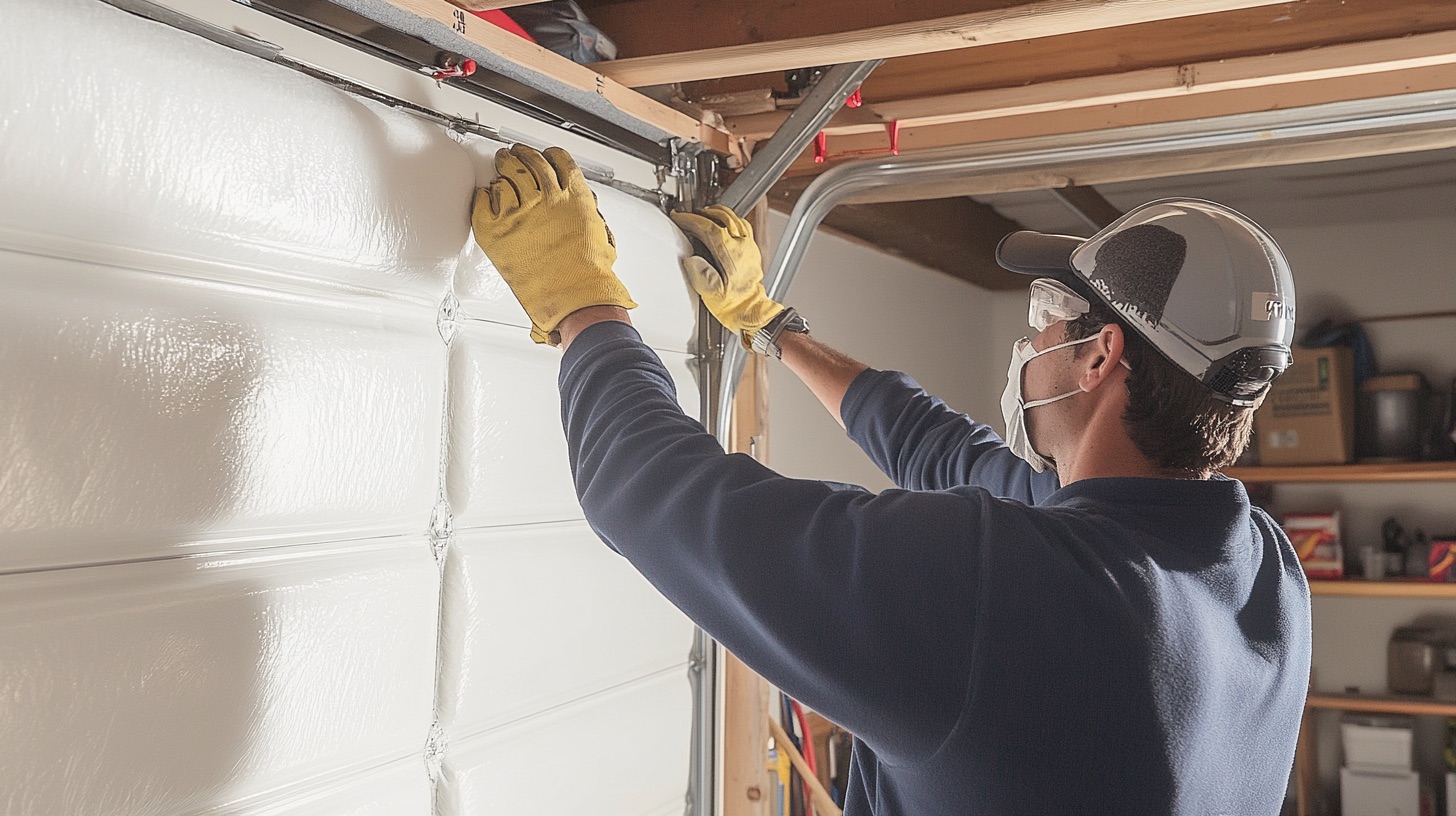
Frequently Asked Questions about Garage Door Insulation
What Type of Material is Used for Garage Door Insulation?
Several options are available for garage door insulation. They include fiberglass, foil insulation (also known as radiant barriers), spray foam insulation, and polystyrene foam. The choice of material depends on your specific needs and budget. Each type has its attributes regarding R-value (a measure of thermal resistance), ease of installation, and cost.
How Do I Choose the Right Garage Door Insulation for My Garage?
Choosing the right garage door insulation depends on a variety of factors such as your budget, climate, your garage's purpose, and local building codes. It's best to seek advice from a garage door insulation professional who can assess your requirements and recommend the best insulation type accordingly.
Do Insulated Garage Doors Make a Difference in Energy Costs?
Yes, they can have a significant impact on energy costs. An insulated garage door keeps heat in during the winter and retains cool air during the summer. Therefore, if your garage is attached to your home and you frequently use your garage, having an insulated garage door can reduce your energy costs significantly.
How Long Does Garage Door Insulation Last?
The lifespan of garage door insulation varies depending on the type of material used, exposure to elements, and maintenance practices. However, most garage door insulation materials can last several years with proper maintenance and care.
Can I Install Garage Door Insulation Myself?
Yes, garage door insulation can be a DIY project if you have the right tools, materials, and instructions. However, it's crucial to understand which type of insulation is best for your garage and how to install it properly. If you're not comfortable doing it yourself, consider hiring a professional to ensure it's done right.
Is Garage Door Insulation Suitable for All Climates?
While any climate can benefit from garage door insulation, it's particularly beneficial in areas with extreme temperatures. In hotter climates, insulation helps keep the garage cooler, while in colder climates, it helps to retain heat.
What if My Garage Door Is Already Installed? Can I Still Add Insulation?
Absolutely! You can add insulation to an existing garage door. There are kits available on the market specifically designed for this purpose. These kits include all the materials and instructions you need.
Does Insulating My Garage Door Add Weight?
Insulating your garage door does add some weight. However, modern insulation materials are lightweight and are usually not substantial enough to interfere with your garage door's functions.
How Do I Maintain My Insulated Garage Door?
Maintaining your insulated garage door is quite simple. Regular cleanings, visual inspections for damage, and ensuring the door is sealed correctly are all that's required. If you notice a drop in the door's performance or insulation effectiveness, it might be time for repair or replacement.
Is Garage Door Insulation Fireproof?
Not all garage door insulation is fireproof. While some materials, like fiberglass, are naturally fire-resistant, others may need to be treated with fire-resistant chemicals. Always check the packaging or ask your installer if the insulation is fire-resistant if this is a concern.
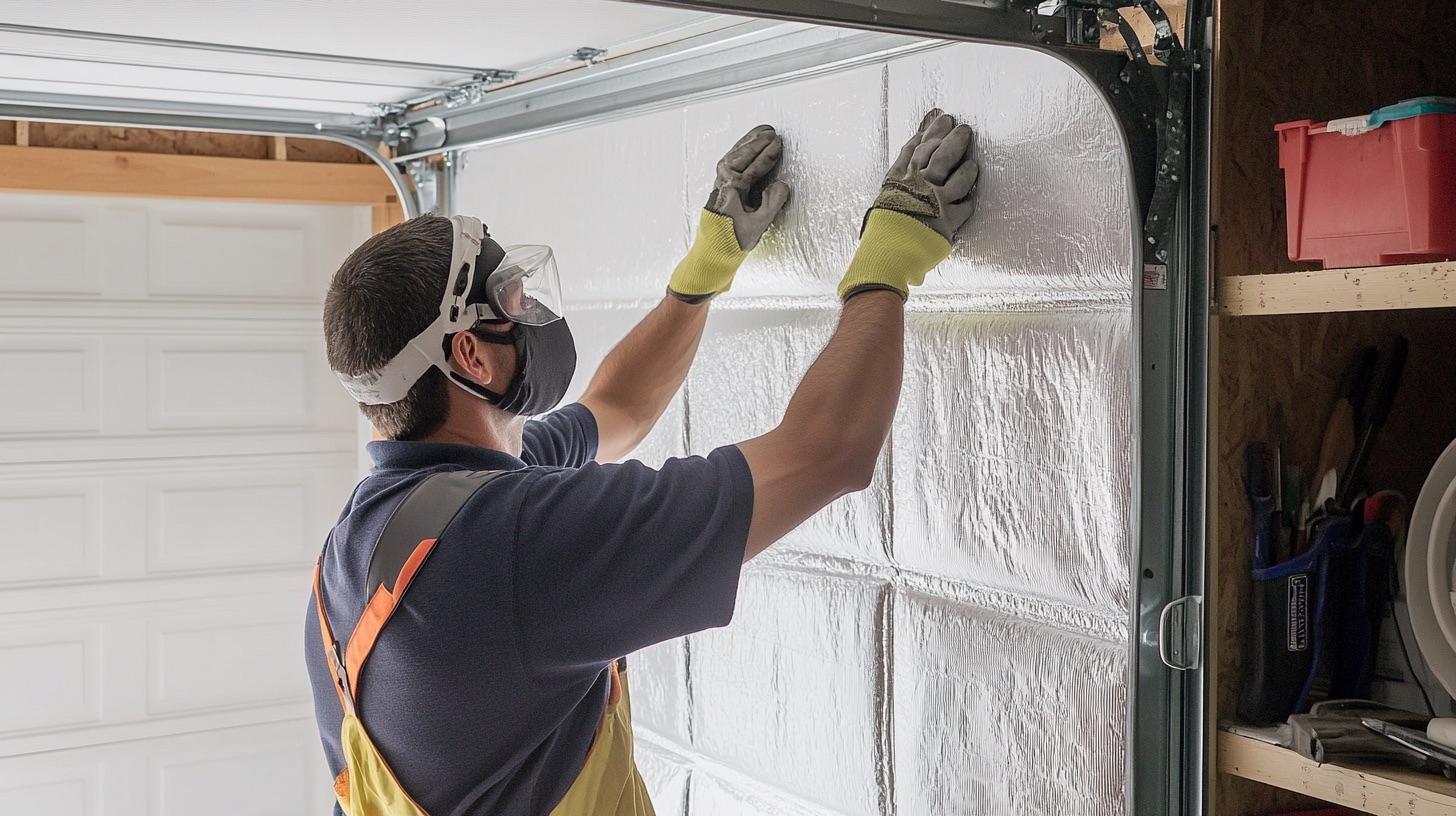
Pros of Garage Door Insulation
Energy Efficiency
Decreased Energy Bills
Garage door insulation is one of the preferred methods of ensuring energy efficiency in homes. A well-insulated garage door reduces the amount of heat that escapes in the winter and keeps the warm air from entering your house during the summer. An insulated garage door can help to significantly decrease your energy bills by maintaining a stable temperature in your garage, reducing the workload on your HVAC system.
Thermal Comfort
Insulated garage doors provide a comfortable temperature inside the garage, irrespective of the external climatic conditions. This becomes essential if you plan to use your garage as a workshop, gym, or an additional living space. The enhanced thermal comfort not only makes the space more usable but also increases your ability to work comfortably in it during cold or hot weather.
Noise Reduction
Insulated garage doors help to reduce noise pollution as they absorb the sounds coming from outside. This is especially beneficial if your home is located in a noisy neighborhood or near high traffic areas. An insulated garage door can dampen the noise from the outside, making your garage a more peaceful and quiet place to work or relax.
Structural Strength
Insulated garage doors are generally more durable than non-insulated ones. The sandwich-type construction of insulated doors, where insulation material is sandwiched between two layers of steel or aluminum, gives them enhanced structural integrity. They are more resistant to dents, damages caused by weather elements, or daily wear and tear, making them a good long-term investment.
Vehicle Protection
An insulated garage door can provide better protection for your vehicles stored in the garage. It helps to shield your vehicles from extreme temperatures which can affect the battery life, tire pressure, and other sensitive components. Additionally, vehicles kept in a well-insulated garage may not have to work as hard upon startup in extreme weather situations, potentially prolonging their life expectancy.
Cons of Garage Door Insulation
Initial Cost
One of the main deterrents for people considering garage door insulation is the initial cost. Insulated garage doors can be more expensive than the non-insulated ones. The overall cost would depend on aspects like the insulation material, the size of the door, the R-value needed, and the installation charges.
Installation Complexity
Proper installation of garage door insulation is essential to reap all its benefits. The process can be complex depending upon the type of garage door and the insulation material. Getting it professionally installed is usually recommended, but it adds to the total cost. DIY installation can be challenging and time-consuming and may not provide the desired insulation effectiveness if not done correctly.
Maintenance
Insulated garage doors may require more maintenance than standard garage doors. The seals, which are an integral part of the insulation system, can wear out over time and may need to be replaced to ensure the insulation remains effective. Also, if moisture seeps into certain types of insulation, it can decrease the effectiveness and may require replacement.
Weight
Adding insulation increases the weight of your garage door. This could put more strain on the garage door opener and other operating parts, potentially requiring a more powerful (and expensive) opening system or frequent maintenance.
Limited Choices
Depending on the model and make of your garage door, there may be limitations on the insulation options available. Not all garage doors are designed to accommodate insulation, which might force you to stick with less efficient alternatives or to replace your existing door with an insulate-able model.
Myths and Misconceptions about Garage Door Insulation
Garage door insulation is an important aspect of maintaining energy efficiency in your home, but there are many myths and misconceptions about this topic. Here are some of the most common misconceptions and the truths behind them.
Myth 1: Garage Door Insulation Isn't Important
Misconception
One of the most prevalent myths about garage door insulation is that it isn't necessary or important. People often believe this misconception because garages are typically not conditioned spaces and so they think that insulating the garage door will not make a significant difference to the overall energy efficiency of their homes.
Reality
The reality is that garage door insulation can make a significant impact on the comfort and energy efficiency in your home. An uninsulated garage door can let in cold air during the winter and let out cool air during the summer, affecting the temperature in your home and increasing your heating and cooling costs.
Myth 2: All Insulation is the Same
Misconception
Another common misconception is that all types of insulation are the same. People often think that it doesn't matter which type of insulation they choose for their garage door.
Reality
Different types of insulation have different R-values, which measure their resistance to heat flow. Insulations with higher R-values are more effective at keeping heat in or out. Therefore, it's essential to choose the right type of insulation based on your local climate and temperature variations to improve your home's energy efficiency.
Myth 3: DIY Insulation is Just as Effective
Misconception
You might think that you can save some money by installing garage door insulation yourself. Many believe that they can purchase insulation kits and handle the installation themselves just as effectively as a professional would.
Reality
While DIY can be a good option in some cases, it's important to understand that installing insulation is a precise task that requires skills and experience. If not installed correctly, you may end up with gaps or uneven insulation which can compromise the effectiveness of your insulation. Hence, for optimal results, it's often better to hire a professional.
Myth 4: Insulation Will Make My Garage Door Too Heavy
Misconception
A common worry among homeowners is that adding insulation will make their garage door too heavy. They fear that the added weight could strain the mechanical components of the garage door opener and lead to breakdowns.
Reality
While insulation does add some weight to the door, modern garage door openers are designed to handle this extra weight. Also, professional installers will ensure that your door is balanced correctly after the insulation is added.
Myth 5: Garage Door Insulation Attracts Pests
Misconception
Another misconception that often discourages homeowners from insulating their garage doors is the idea that insulation will attract pests. Some believe that mice, rats, or bugs may be drawn to an insulated garage door and make their home there.
Reality
While pests are attracted to warm spaces during the cold seasons, insulation itself does not attract pests. In fact, some types of insulation are treated with pest deterrents. As long as you keep your garage clean and take regular pest control measures, you should not have a problem with pests due to insulation.
Understanding the facts about garage door insulation can help you make informed decisions and avoid these common misconceptions. Garage door insulation is a worthwhile investment that can improve the comfort of your home and reduce your energy bills.
Summary
Sure, garage door insulation is a great way to save on energy costs and improve your home's comfort. It keeps hot air out in the summer and warm air in during the winter, ensuring you're not wasting money on heating and cooling your house. Plus, if you use your garage as a workspace, insulation can help create a more comfortable environment all year.
Without a doubt, garage door insulation also helps reduce noise from outside. If you live on a busy street or near a noisy area, insulation can help dampen some of that sound. This is particularly beneficial if you do work or hobbies in your garage, or if your bedroom is just above it.
From saving on energy costs to reducing noise, there are so many reasons to consider installing garage door insulation. Don't let your garage be an energy drain or a source of noise pollution. Invest in insulation and make your garage a more comfortable, efficient space in your home. It's a game-changer!
About 1A Garage Doors
Meet 1A Garage Doors of Sacramento, CA — your reliable, go-to option for all things garage doors in the Sacramento area! We're a family-owned business that's built a reputation for top-notch service, affordable prices, and dedicated craftsmanship. Our team of experienced pros specializes in garage door installation, repair, and maintenance, ensuring your home stays functional and secure. Whether you need us for simple tune-ups or more complex repairs, we guarantee exceptional service. Experience the 1A Garage Doors difference today and see why Sacramento homeowners trust us with their garage doors!

